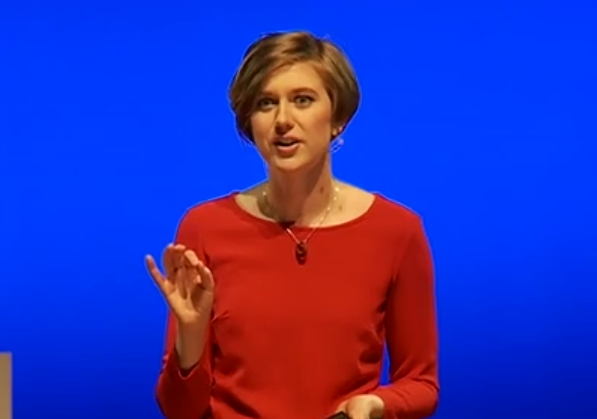We want to accelerate adoption of sustainable building and development practices.
我们想要提高高承受性建筑及其应用的采纳度。
We want more innovation.
我们想拥抱更多革新。
But a lot of times, whole categories of innovation --
但是很多情况却是,目录上所有革新当中,
ones that can help us live more beautifully -- turn out to be illegal.
那些能够帮助我们生活更美好的,最终往往不合法。
Today's regulations and codes were written under the assumption
如今的法规和条例都是基于假设所写。
that best practices would remain best practices, with incremental updates forever and ever.
那些优质实践永远都是优质的,伴随着的只是不断叠加的升级工程。
But innovation isn't always incremental.
但是创新不总是叠加的。

It turns out, how we feel about any particular new technique gets into everything we do:
事实证明,我们对任何新技术的看法会进入到我们生活的方方面面:
how we talk about it, how we encourage people to study, our jokes, our codes.
我们讨论它的时候,我们鼓励他人的时候,我们的笑话,甚至条例当中……
And it ultimately determines how innovative we can be.
这将最终决定我们能富有多少革新精神。
So, that's the first reason we don't innovate in sanitation.
这也是我们不愿在卫生设施体系当中革新的第一个理由。
We're kind of uncomfortable talking about sanitation, that's why I've gotten called "The Poo Princess" so much.
我们在一定程度上是不愿讨论卫生体系的,这也是我被如此频繁的被称为“大便女皇”的原因。
The second reason is: we think the problem is solved here in the US. But not so.
第二个理由是:我们认为这个问题在美国这儿已经被解决了。但事实并非如此
Here in the US we still get sick from drinking shit in our sewage water.
在美国我们依然会因为饮用含有粪便成分的阴沟水而生病。
Seven million people get sick every year, 900 die annually.
每年有700万人因此生病,一年会有900人死于此因。
And we're not taking a holistic approach to making it better. So we're not solving it.
但我们并没有运用一个更加彻底有效的方法来改善现状。也就是说,我们并没有解决问题。
Where I live in Portland, Oregon, I can't take Echo for a swim during the rainy season,
在我住的地方:俄勒冈州波特兰市,我都无法回应你在雨季游泳的感受,
because we dump raw sewage sometimes into our river.
因为我们时常把未处理过的污水直接倒进河里。
Our rainwater and our sewage go to the same treatment plant. Too much rain overflows into the river.
我们的雨水和污水会进入相同的处理池。这样,过多的雨水就会进入河流之中。



